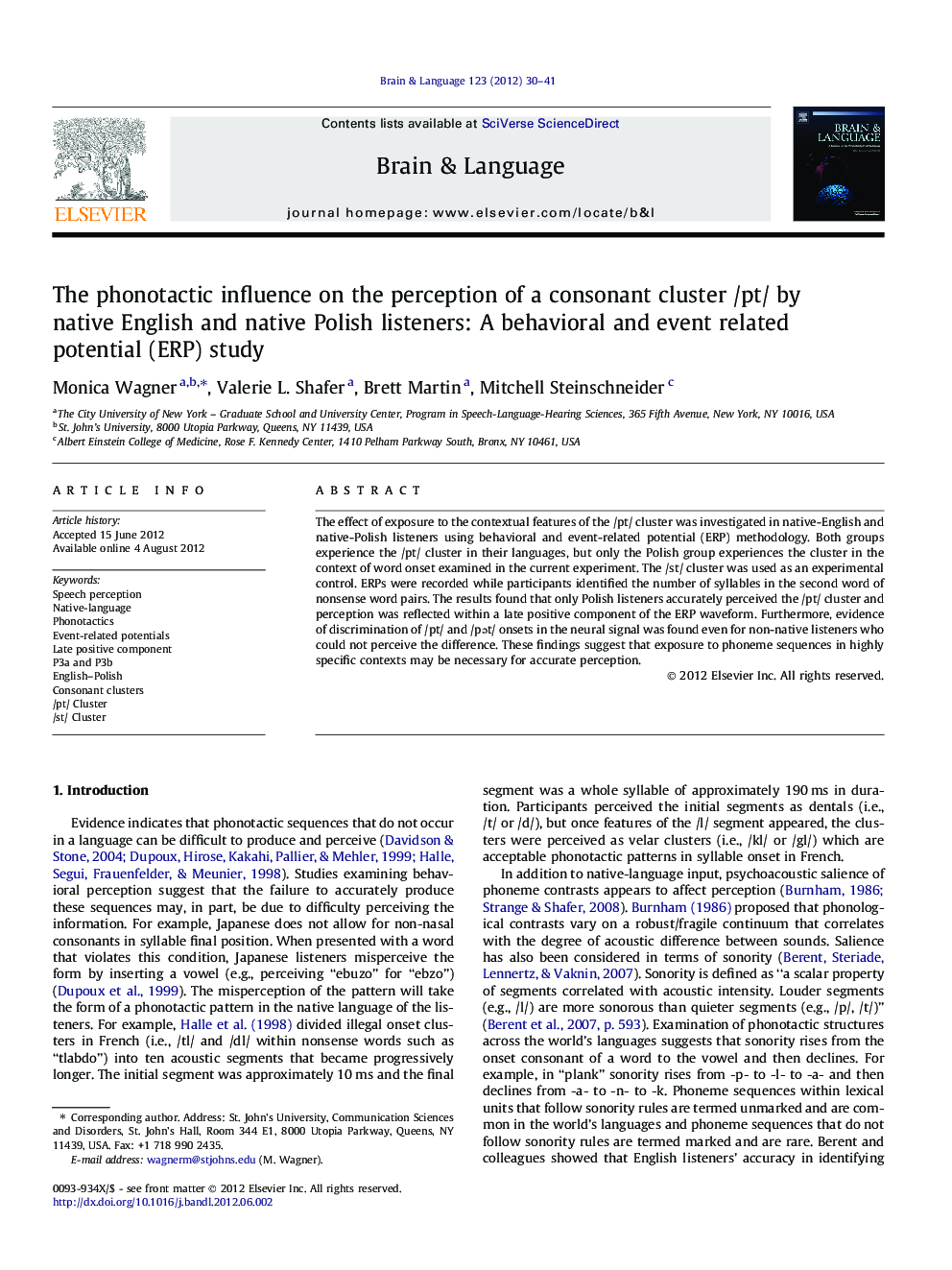| Article ID | Journal | Published Year | Pages | File Type |
|---|---|---|---|---|
| 925391 | Brain and Language | 2012 | 12 Pages |
The effect of exposure to the contextual features of the /pt/ cluster was investigated in native-English and native-Polish listeners using behavioral and event-related potential (ERP) methodology. Both groups experience the /pt/ cluster in their languages, but only the Polish group experiences the cluster in the context of word onset examined in the current experiment. The /st/ cluster was used as an experimental control. ERPs were recorded while participants identified the number of syllables in the second word of nonsense word pairs. The results found that only Polish listeners accurately perceived the /pt/ cluster and perception was reflected within a late positive component of the ERP waveform. Furthermore, evidence of discrimination of /pt/ and /pəət/ onsets in the neural signal was found even for non-native listeners who could not perceive the difference. These findings suggest that exposure to phoneme sequences in highly specific contexts may be necessary for accurate perception.
► We examined the effect of exposure to contextual features of word onset /pt/. ► We compared listeners of English and Polish. ► Both languages contain the /pt/ cluster, but only Polish has /pt/ in word onset. ► Native-language perception was reflected within the LPC. ► Results support experience-based contextual feature processing in perception.
